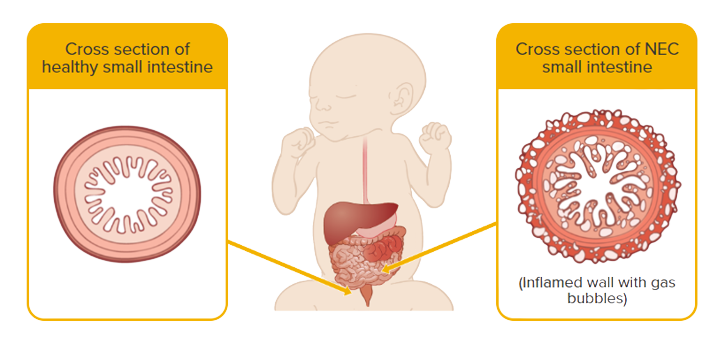Necrotising enterocolitis (NEC) is an inflammatory bowel disease of infants marked by necrosis. It is the most common gastrointestinal emergency in preterm neonates and a significant cause of morbidity and mortality in neonatal intensive care units worldwide.
The incidence of NEC is estimated to be 1–3 per 1000 live births, with more than 90% of all cases occurring in preterm infants. Research has shown NEC was recorded in 11.5%, 9%, 6%, and 4% of infants weighing 401–750g, 751–1000g, 1001–1250g, and 1251–1500g, respectively. Despite improvements in neonatal intensive care and increased overall survival of critically ill premature neonates, mortality rates from NEC can still reach 50%.
The principle modes of action of MRG1061 in both indications are through:
- Decreased inflammation
- Activation of resident stem cell and tissue-specific progenitor cell populations.
- Increased angiogenesis
- Anti-apoptotic and chemotactic signalling
- Beneficial remodelling of the extracellular matrix

